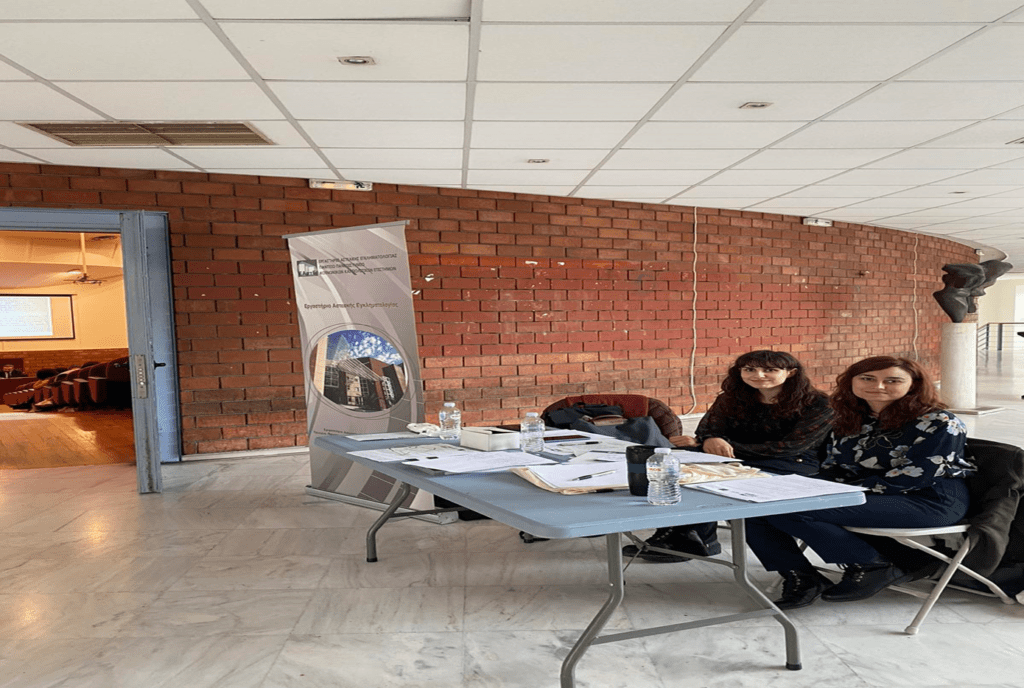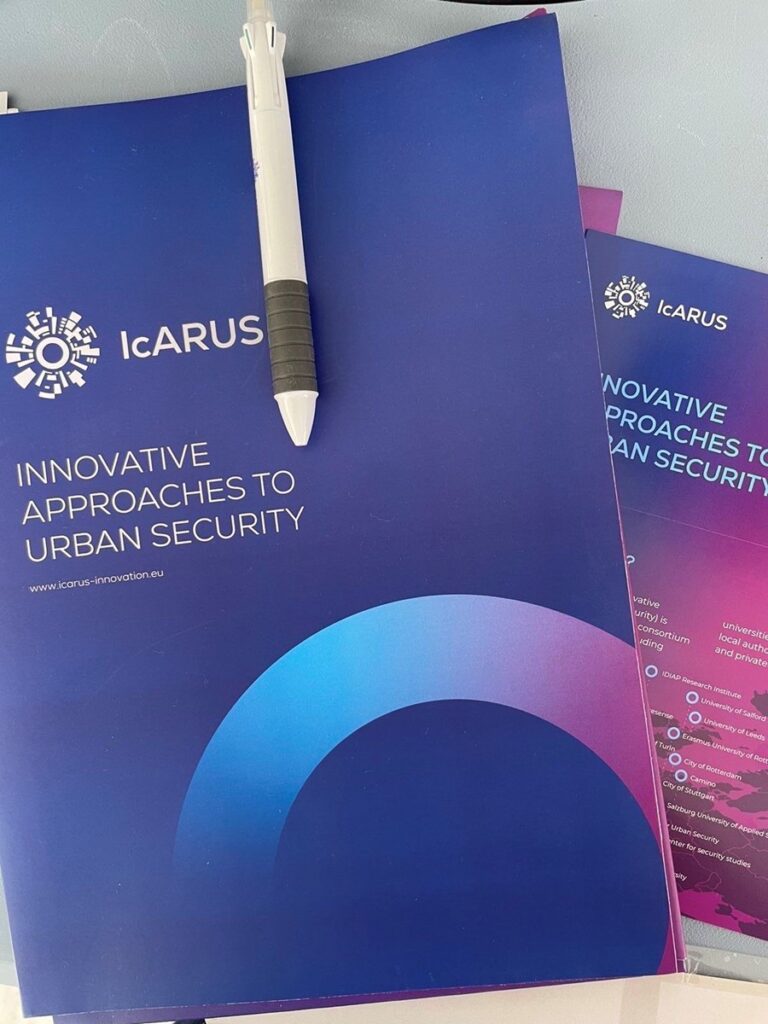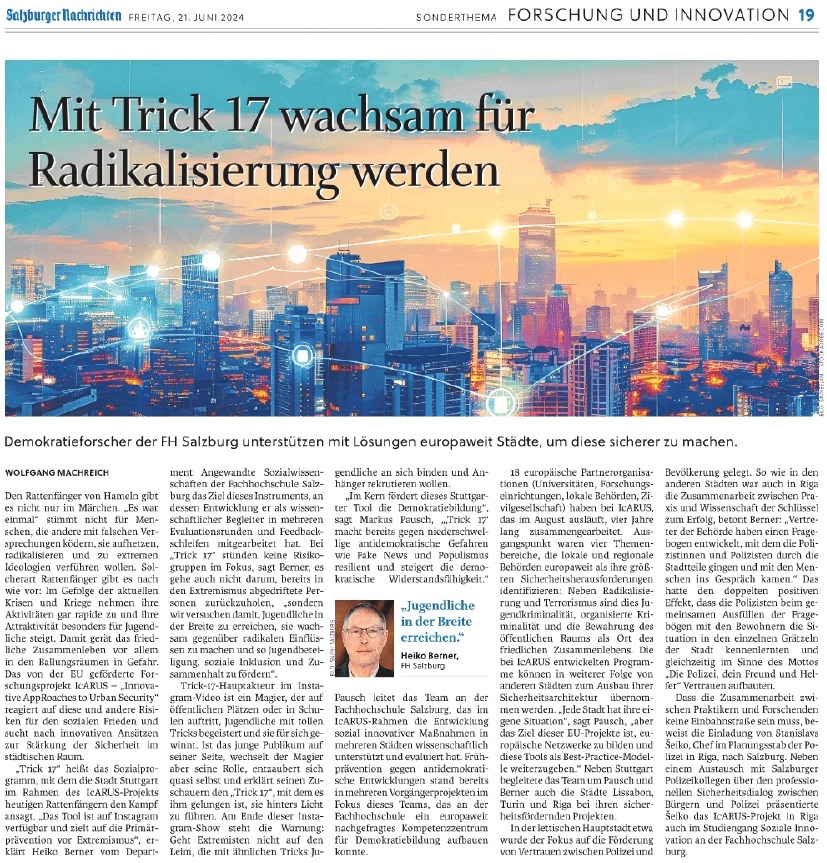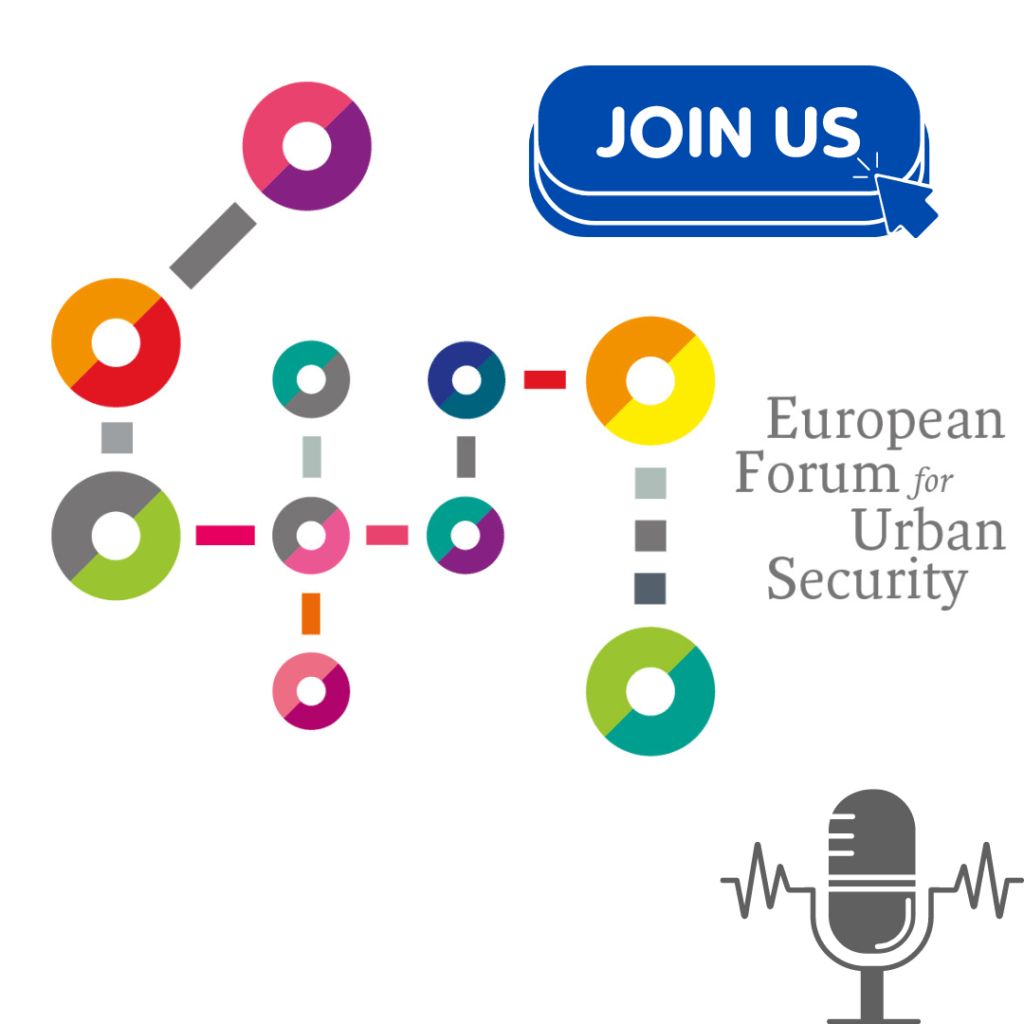Month: July 2024
Training seminar “Education of professionals of the criminal justice system in restorative justice” in the framework of PROBATIONET Project


On 22 November 2023, the training seminar “Education of professionals of the criminal justice system in restorative justice” took place in the amphitheater “Sakis Karagiorgas II” of Panteion University. The seminar was organized by Panteion University of Social and Political Sciences via the Laboratory of Urban Criminology in the framework of the European Project “Probationet: Α flexible, multidisciplinary, and transnational VET model for the PROBATION services and practitioners” (Agreement Number: 2021-1-EL01-KA220-VET-000033290) under the scientific responsibility of Professor Christina Zarafonitou. During the seminar the Laboratory’s team distributed IcARUS material and leaflets to those who attended the seminar and informed them about the Project.
(20+) Στις… – Εργαστήριο Αστεακής Εγκληματολογίας Παντείου Πανεπιστημίου | Facebook

Democracy Researchers from FH Salzburg Support Solutions to Make European Cities Safer

The Pied Piper of Hamelin is not just a fairy tale. “Once upon a time” doesn’t apply to people who lure others with false promises, radicalize them, and lead them to extreme ideologies. Such Pied Pipers still exist today: In the wake of current crises and wars, their activities are rapidly increasing, and their attractiveness to young people is especially high. This puts peaceful coexistence, especially in metropolitan areas, at risk. The EU-funded research project ICARUS – “Innovative AppRoaches to Urban Security” responds to these and other risks for social peace and seeks innovative approaches to strengthening safety in urban spaces.
“Trick 17” is the name of the social program that the city of Stuttgart uses as part of the ICARUS project to address these Pied Pipers, says Markus Pausch from FH Salzburg. The tool is available to all partners and aims primarily at preventing extremism, explains Heiko Berner from the Department of Applied Social Sciences at FH Salzburg. Its goal is to establish it as a scientific tool, in cooperation with evaluation rounds and feedback sessions. In “Trick 17,” the focus is not only on risk groups, Pausch adds, but also on reintegrating already radicalized individuals, “We try to widen the range, to achieve broad societal influence, and to promote social inclusion and democratic resilience.”
The Trick-17 main program video is shown in schools and public places where the magician, performing tricks, warns the audience not to fall for such Pied Pipers. “Trick 17” uses a sophisticated light show to convey this message. The warning: “Youth in general reach out.”
Pausch leads the team at FH Salzburg, which scientifically supports and evaluates the development of socially innovative measures within the ICARUS framework in several European cities. Early prevention against antidemocratic developments is the goal, emphasizing FH Salzburg’s expertise center for democracy building.
18 European partner organizations (universities, research institutions, local authorities, NGOs) have been working together in ICARUS for years. Different thematic focuses address the major security challenges in various regions: besides radicalization and terrorism, these include gang crime, organized crime, and the preservation of social cohesion. The programs developed under ICARUS can be adapted and applied elsewhere, including the involvement of local populations in the security architecture. “Each city has its unique situation,” says Pausch, “but the goal of these EU projects is to develop models that can be adapted universally.”
Stuttgart, along with other cities like Lisbon, Turin, and Riga, has successfully implemented this approach. For example, in Riga, the collaboration between police officers and the public was essential for success. Berner emphasizes that local authorities developed a questionnaire to engage with residents and understand their concerns directly. This process built trust in the police as “friends and helpers.”
The cooperation between practitioners and researchers is further evidenced by the invitation of Stanislavs Šeiko, head of the Riga police planning staff, to Salzburg. An exchange of experiences with the professional security service between citizens and police presented ICARUS projects in Riga was also presented during the “Social Innovation Studies” lecture series at FH Salzburg.
The aim of these initiatives is to build trust between the police and the community, making it easier for law enforcement to understand and address the specific issues within different neighborhoods. This dual approach not only helps in crime prevention but also strengthens community ties, fostering a sense of collective security and cooperation.
Key Points:
- Multinational Cooperation: The project involves 18 European partner organizations, including universities, research institutions, local authorities, and NGOs.
- Focus Areas: Addresses major security challenges such as radicalization, terrorism, gang crime, and organized crime, aiming to preserve social cohesion.
- Innovative Approaches: Programs like “Trick 17” use creative methods to engage and educate the public, particularly the youth, about the dangers of extremism and the importance of social inclusion.
- Local Adaptation: While the core principles of the programs are consistent, each city can adapt the strategies to fit its unique situation, ensuring relevance and effectiveness.
- Trust Building: Emphasizes the importance of trust between the police and the community, achieved through direct engagement and responsive actions.
The ICARUS project exemplifies how collaborative efforts and innovative strategies can enhance urban security and social cohesion across Europe. By involving a diverse range of stakeholders and focusing on both prevention and reintegration, these initiatives aim to create safer, more resilient communities.

Elaboration of training procedures for end users – a crucial step towards implementation and dissemination of the IcARUS toolkit
Camino has developed models and recommendations for the design and delivery of trainings for the end users of the IcARUS toolkit based on the evaluation of the training sessions which were held in Lisbon, Nice, Riga, Rotterdam, Turin and Stuttgart.
Background: The training sessions for the IcARUS toolkit
The “IcARUS – Innovative Approaches to Urban Security” project has developed a toolkit containing six tools to address key challenges in urban crime and violence across Europe. Although the manuals developed for the IcARUS toolkit contain precise information on how to implement the tools, the mere reception of this information will not be sufficient for the successful transfer and implementation of a tool. Methods should be tried out by those who are to use them later. For this purpose a training session for each tool was tailor-made and co-developed by the partners Efus, University of Salford, Idiap Research Institute, Camino and University of York in coordination with the IcARUS cities. The IcARUS training sessions marked the beginning of the demonstration phase. These sessions were designed for the end-users of each IcARUS tool, mostly consisting of the city’s civil servants, technicians and local police officers. The goal was to equip them with the necessary skills and knowledge to ensure a smooth start of the implementation phase, once the IcARUS project ends.
Learnings from the trainings and recommendations: the training procedures
The experiences from the trainings and the initial testing of the tools in the six IcARUS cities have been incorporated into the development of the training procedures, further enhancing the project’s impact and sustainability. The training procedures consist of general aspects for the trainings for the IcARUS Tool Box, the training models for each city and conclusions (to be included in the upcoming D4.5).
The training sessions took place as part of the participatory tool implementation in the six project cities. It is important to emphasise that the training does not replace the joint preparation of all stakeholders involved in the implementation. At the same time, the training should also be understood as part of the collaborative process of learning and unlearning from each other and thus always leave room for further ideas or criticism regarding the implementation of the tool.
For the training to be successful, it should be clarified beforehand that the invited participants know the tool development process and that the training participants are already familiar with their role in the implementation of the tool. The more extensive and complex the tool is, the more time is needed for training. However, time is often a barrier to participation. For the design of the training, this means that the trainers have to be mindful of the participants’ time.
To be successful, training courses must be designed to be as inclusive as possible. If the training, or parts of it, have to be translated, language barriers may arise, important details, especially regarding technical elements of the tools, may be lost. Ideally, the training should take place in the participants’ native language. However, it also plays a role whether the trainers are perceived as experts beyond their language skills. When tools are developed collaboratively, the focus is on local-specific problems; experts who are not familiar with this context often have less credibility. At the same time, very different skills are required for the training sessions: Facilitation, methodological knowledge, technical knowledge, gender and diversity skills. Ideally, a team of trainers is put together so that all these requirements are met in the best possible way. IcARUS pursues the approach of developing and implementing all tools from a gender-inclusive and discrimination-sensitive perspective in alignment with the European Commission’s priorities. This must also be implemented in the training, on the one hand by making the training itself as inclusive as possible by considering potential barriers, preventing stigmatising effects and by including a training unit to reflect on gender inclusivity from an intersectional perspective .

IcARUS Policy Brief: Fostering Young Engagement for Juvenile Delinquency prevention
Juvenile delinquency is not a new phenomenon; it has consistently been at the forefront of public attention and a concern for local, regional and national authorities across Europe. Over the years, various trends and theories have emerged, aiming to understand its root causes and develop initiatives to prevent youth involvement in crime and delinquency.
While rehabilitation and correctional approaches were the dominant methods for addressing juvenile delinquency up until the 1970s, there has since been a growing emphasis on prevention strategies. These strategies focus on early intervention, community engagement and preventing offending before it occurs.

IcARUS Policy Brief: Unveiling the Power of Social Innovation in Urban Security
The evolution and/or transformation of problems related to urban security makes it necessary for public policy-makers to continually adapt their services to new challenges to be able to respond to citizens’ needs in a timely manner. Re-thinking the way in which urban security policies are having a positive impact on the quality of life of all citizens, especially today as public policy processes strive to better align with citizens’ expectations, should be a priority for policy makers.
Many design-based innovation methodologies, including design thinking, human-centred design and strategic foresight, can support local authorities in exploring possibilities without constraints. These processes can inform urban security policies making them more inclusive and truly co-produced, and oriented towards citizens’ needs. They can also speed up their implementation.

IcARUS Policy Brief: Aknowledging the Key Role of Local and Regional Authorities in Crafting Inclusive Community Initiatives to Prevent Radiclization Leading to Violent Extremism
European cities and regions are faced with the phenomenon of extremism that can lead to violence, which can take various forms. Besides actions taken at the international, European and national levels by public authorities and law enforcement, local authorities can play a key role in addressing this phenomenon. Indeed, they are close to communities on the ground and can lead preventive actions to build the resilience of individuals and communities together with local stakeholders.

IcARUS Policy Brief: Building Resilient Communities – The Local Roots and Impacts of Organised Crime
According to the Council of Europe’s 2015 White Paper on transnational organised crime, some 3,600 international organised criminal groups are active in Europe. The Council stresses that organised crime is one of the most serious threats faced by Europe because of its adaptability, sophisticated tools, violence, diversity of crime type and ability to forge alliances and operate across borders in all parts of Europe.
The transnational nature of organised crime calls for Europe-wide and global responses and indeed, countering it is one of the top priorities of the Council of Europe and multilateral organisations such as the United Nations Convention Against Organised Crime (UNTOC). However, in the end, it is always at a local level that organised crime is most directly felt, whether because a neighbourhood is rife with drug trafficking, or money laundered through local businesses or real estate projects, or gangs exchanging gunfire in the streets.

Efus launched its podcast channel on urban security: Join the conversation!

Paris, May 2024 – After a fruitful Security, Democracy and Cities conference in March in Brussels, the European Forum for Urban Security is launching a podcast channel to share its expertise and insights on urban security.
Together with representatives from some of our member cities and regions as well as experts and practitioners, we’re exploring in the first season (10 episodes) a broad range of urban security issues such as the security of large events, the local impact of organised crime, the prevention of radicalisation leading to violent extremism and more!
By giving voice to a wide variety of points of views and perspectives, our podcast series looks to facilitate knowledge sharing, inspire innovative approaches, and promote collaboration in creating safer and more inclusive urban environments.
Produced in the framework of the IcARUS project, the first episode will focus on 30 years of crime prevention and urban security starring Adam Crawford, Co-Director of the Vulnerability and Policing Futures Research Centre at the University of York and the University of Leeds (UK), and André Vervooren, former Director of the Safety Department of the City of Rotterdam (Netherlands). The episode is moderated by Efus’ Executive Director, Elizabeth Johnston.
They are available on all platforms including Spotify, Amazon music, YouTube and more. Join the conversation and subscribe to the only podcast (as far as we know!) dedicated to the future of urban security and resilience.

D7.3 Management and coordination Plan for the Expert Advisory Board and Consultative Committee of Cities
Management and coordination Plan for the Expert Advisory Board and Consultative Committee of Cities

D6.2 Publication of the code of ethics and good scientific practices in IcARUS
Publication of the code of ethics and good scientific practices in IcARUS

subscribe to be the first to receive icarus news!
Know what we've been up to and the latest on the European urban security frame.









